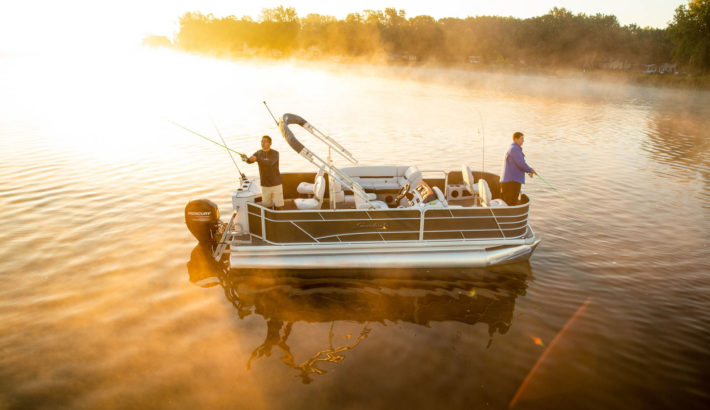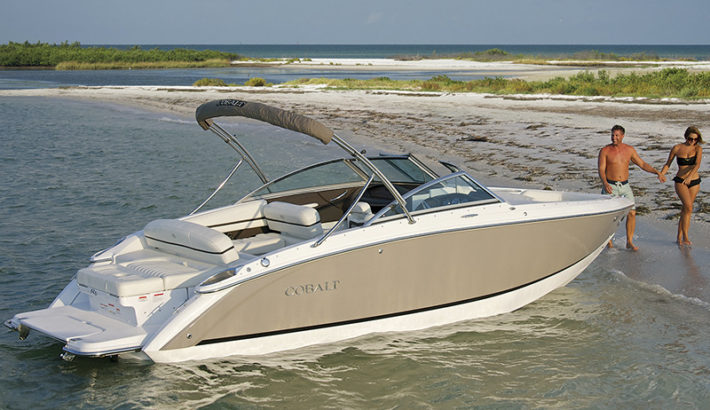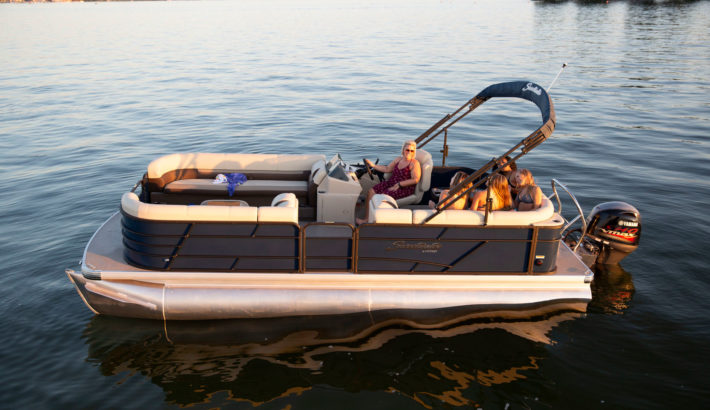10 TIPS FOR BEGINNER BOATERS
When it comes to boating, as with most things in life, there is no substitute for experience. This time of year, as boaters all across the country are returning to the water, many are venturing out on boats for the very first time.
IF YOU’RE ONE OF THESE ROOKIE BOATERS, HERE ARE A FEW TIPS TO HELP YOU IN YOUR FIRST BOATING SEASON.
- Check the weather before you hit the water. If you already checked it, check again before you head out. Weather changes, and unexpected storms can sneak up on you. If you’re new to boating, that’s no time to be caught by a surprise squall.
- Get on and off the boat ramp quickly so other boaters aren’t giving you the evil eye. Load your boat ahead of time—not on the ramp. Find an empty parking lot and practice steering with your trailer so you’ll have experience come launch day.
- Dress in layers. It might be warm on land, but you don’t want to get cold if the breeze kicks up on the water. Be prepared for changes in conditions.
- Go slow when docking. If you rush, you could damage your boat, the dock, or worst of all, another boat. If it’s not going well, don’t be too proud to back away and start again. (Read docking tips here)
- Pack more food and water than you think you’ll need. You may be surprised by how boating works up your hunger and thirst. There’s no drive-through on the water, so make sure you’re well stocked.
- Valuables like cell phones, keys and wallets have a way of getting wet or falling in the drink. Make sure they’re secured.
- Leave a float plan. Things can go wrong on the water. Make sure if you get stuck out there, somebody onshore knows when and where to look for you.
- Always wear a life jacket. The vast majority of boating-related deaths occur because victims were not wearing a life jacket. It’s easy to do, and it could save your life.
- Have an on board first-aid kit. When you are on the water, you can’t just run to the doctor’s office if you suffer an injury. Be prepared to treat yourself until you can get back to land.
- Have a tool box. If you have a mechanical problem when boating, you don’t want to be stuck on the water for hours waiting for help to arrive. Have tools and spare parts available so you can fix any problems yourself.
Cobalt to expand Kansas facilities
Cobalt Boats said it will invest about $7 million in a multiyear expansion of its Neodesha, Kan., facility. The company said in a statement that the expansion will increase capacity, as well as improve operational efficiency.
“This is an exciting announcement for our team, dealers and customers as we invest in increasing capacity to meet customer demand,” said Shane Stanfill, Cobalt vice president of operations, in the statement. “We believe these investments are ensuring our ability to sustain our world-class operations here in Neodesha.”
A groundbreaking ceremony will be scheduled early this year as the first phase of construction begins. The company did not release specific details about the size of the expansion.
The Future of Pontoons
Elux Pontoons is hoping to catch the pontoon-buying public’s imagination this week, as it shows its first 24-ft. model at the Minneapolis Boat Show. The Elux 24 is unconventional in that it’s powered by an electric motor with an innovative topside layout. It’s even more unusual because its owner is the former chief executive of a medical devices company.
Howard Root co-founded Vascular Solutions several decades ago and sold it to Textron in 2017 for $1 billion. Root admits that starting an electric pontoon boat company was quite a sea change after his successful career, but he had no interest in going back into the med-tech industry.
“That industry has changed since I started,” Root told Trade Only Today. “I had a good run with Vascular Solutions, but I was tired of medical devices and managing 750 employees. I retired the day I sold it.”
Before selling Vascular Solutions, Root was stuck in a protracted legal battle with the Food and Drug Administration. A jury acquitted him on charges that his company illegally promoted a line of medical devices. His self-published book, “Cardiac Arrest: Five Heart-Stopping Years as a CEO on the Feds’ Hit List,” details the prolonged court case.
Jones had also been developing a new pontoon concept for five years. “I asked myself a simple question: What if a pontoon didn’t look like a pontoon,” he says. “I wanted to create a pontoon that was tailored for lake cruising but was also sleek and stylish.”
A Tesla owner, Root was impressed with advances in battery power and felt there was a market for an electric boat on inland lakes. He also felt that pontoon boats needed a facelift. “They tend to look like a dance floor with living room furniture,” he says. “We’re not seeing a lot of innovative designs.”
Instead of aluminum, the Elux will be fiberglass with the pontoons integrated into the hull. Root and Jones have also developed their own electric propulsion with a permanent magnet AC motor powered by a 72-volt, 420-amp lithium battery pack. Root says the Elux will have about 10 hours of cruising time at five mph. It can reach a top end of 14 mph. “I think people will appreciate the fact that it’s hassle-free, with no gas or oil, and you almost can’t hear it,” he says.
The boat will be priced at $79,000 for 2019 and that price will rise to $89,000 in 2020. Root says the company will build three boats this year at a facility near Minneapolis. There are no immediate plans for a dealer network. “We’ll go direct for the first two or three years,” he says. “We’re going to deliver them and service them ourselves. It’s important for us to be hands-on with the customers.”
Root says that the slow start is part of the process. “We think it’s a great design and will be a desired product in the boating industry,” he says. “But the easiest way to succeed is to temper expectations. We’ll let the market keep it on track.”




Recent Comments